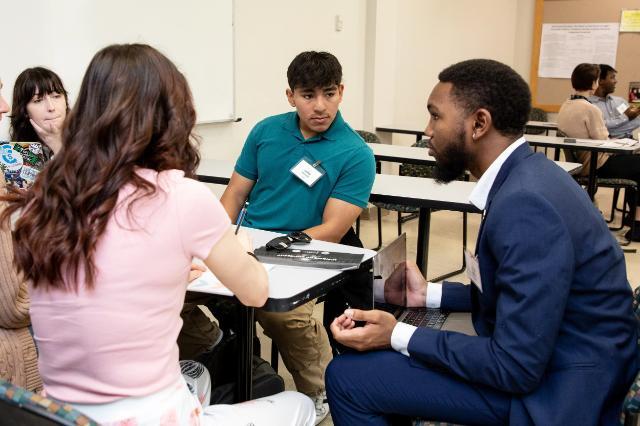

Civitae, the set of classes that form the foundation of a Longwood education, is the cornerstone of academic life on campus. Built on timeless principles that form citizen leaders, students work creatively across disciplines to connect ideas and think about the world in a deeper, more complex way.
The Civitae Core Curriculum
The Civitae Core Curriculum
General Education with a mission.
The world is complex and interconnected. Civitae, Longwood’s unique approach to education, prepares students for that world by intentionally reinforcing those connections through multidisciplinary, co-taught classes that blend creative energy with an intense focus on our mission of creating citizen leaders. While the approach is new, Civitae is shaped, like Longwood itself — by the history, tradition, and wisdom of ages past.
Students who complete Civitae have a qualification that transcends a college degree: time-tested skills of communication, critical thinking, and teamwork—skills that are invaluable both in the workplace and in democracy.
How do we do that?
All Civitae classes have a focus on developing communication skills, and they emphasize understanding issues or topics by considering a variety of perspectives. The knowledge and skills gained in initial Civitae classes don’t just disappear after the final exam—they’re put into use and context in the next level of classes, culminating in a senior-level symposium on the common good.
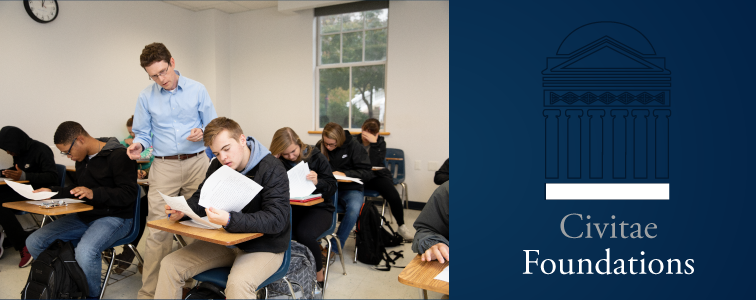
First-year coursework
Everyone must start somewhere. At Longwood, you begin with two classes, which hone indispensable skills needed for life as a citizen leader: Writing & Rhetoric and Inquiry Into Citizenship. Freshmen start learning the essential skill of effective communication in a variety of forms: professional, academic, interpersonal. Balancing that is an initial exploration of citizenship—a look at ethical issues facing Americans in the 21st century from the lens of a particular discipline. Inquiry into Citizenship classes have titles like Nationalism in the 21st Century, Community Building Through Sport and Exercise, and Gatekeepers of Democracy: 21st Century Educators.
Emerging from these two courses, Longwood students show an increased ability to not only think critically about issues facing the world, but also communicate about them.
Explore signature Foundation courses
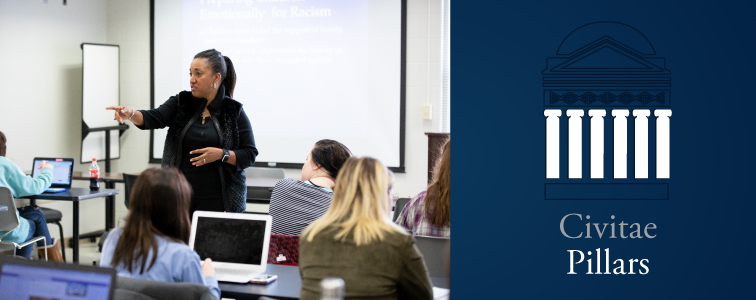
Pillars
In your first two years at Longwood, you’ll learn foundational material —by selecting courses from individual disciplines that emphasize wider groupings, such as Historical and Contemporary Insights or Human Behavior and Social Institutions.
Some of these Civitae pillar classes have the rare added advantage of being able to count toward your major, which helps you move smoothly through your four years on campus. You also can explore multiple avenues of study, which makes you more competitive when looking for a job when you graduate.
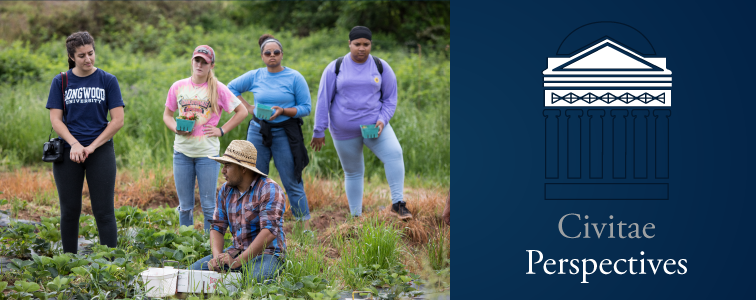
Perspectives
This level gathers the skills from the First-year and Pillars to dive into a multi-layered issue.
Perspectives courses are learning experiences designed to make connections between courses and fields. They are challenging—students must develop the ability to understand issues from a variety of perspectives and practice the skills necessary to address those issues as an informed citizen. These classes are taught by a single instructor in a discipline or by multiple instructors in different disciplines.
Many of our signature Brock Experiences, courses in which you would travel to a place affected by a pressing issue for in-depth study, are perspectives-level courses
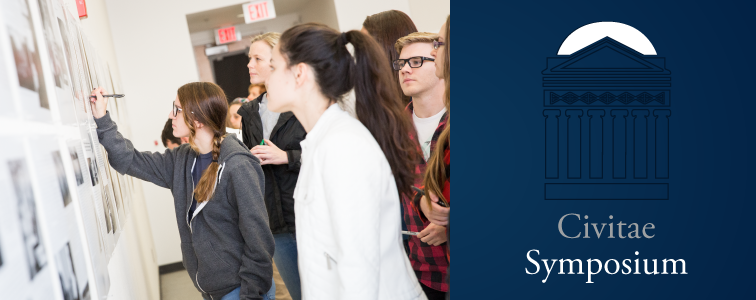
Symposium
The Symposium on the Common Good is the culmination of Civitae and your Longwood general education.
Through research, discussion, advocacy, and reflection, students deliberate on citizenship and the issues citizens face in their communities. The symposium is organized around a broad theme, and culminates in a campus-wide Symposium Day to motivate students to move from investigation to action.
Check out the Symposium Day Schedule


